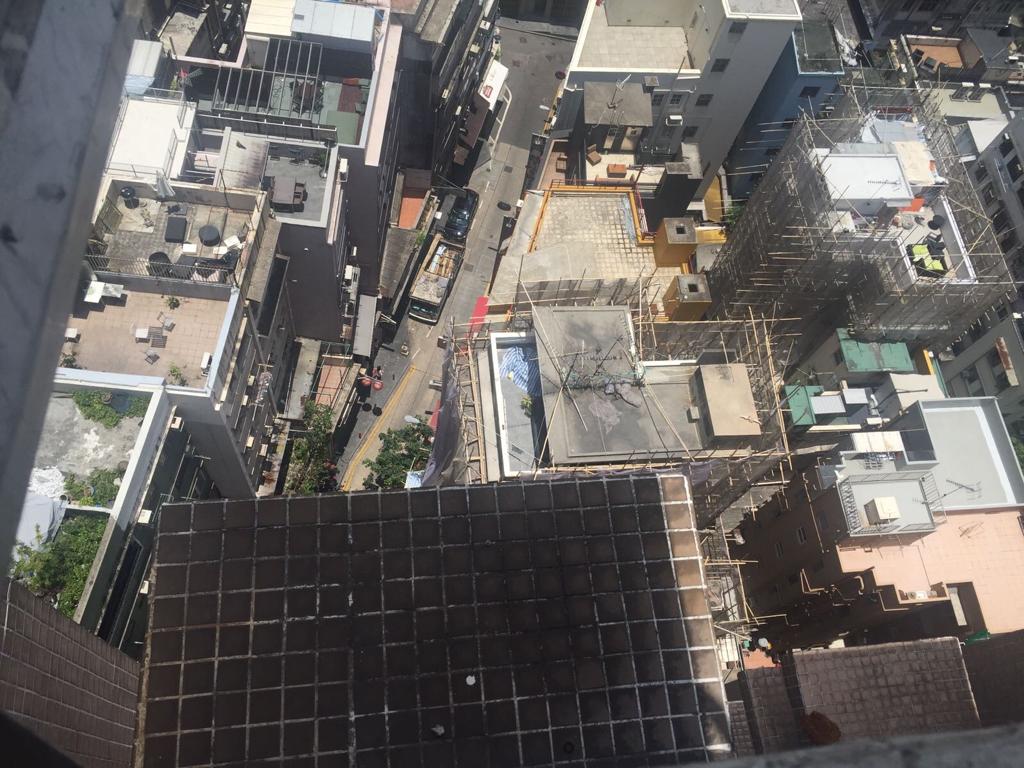What do you see when you look at this photo - a typical skyline of a metropolis, busy streets down below, secret rooftop gardens?
What I see is the small, red and white-tiled ledge at the bottom of the photo. Why, you may ask, is this relevant? For me, this tiny platform -- 19 floors up -- is where I stood one night whilst my apartment was on fire. I was deciding whether to jump or crawl back into a burning apartment to escape.
My Story
Rewind almost one year and I had arrived in Hong Kong as a local transferee – with all the excitement, fear, and anticipation that people experience when they move to a new country. I had never been to Hong Kong before, and I was excited to start a new chapter of my life.
Throughout my career, I have always worked in the world of Global Mobility, and it was important for me to experience life as an expatriate (given that I had been advising on the matter for years). My employer at the time provided all the standard relocation support (temporary housing, area orientation, help finding a property, etc.) – so far, so normal.
Everything for me changed on the night of my 30th birthday: I awoke to a fire in my apartment and, as a result, I ended up in intensive care and lost all my possessions. My family travelled halfway across the world, unsure of whether I would be alive when they arrived, and I returned home to the United Kingdom shortly after to recover.
As you can imagine, there are several things this experience has taught me; one of the things I am most passionate about is sharing my experience to help support others. This includes raising awareness with Mobility teams to ensure they are prepared and equipped should such unexpected events impact their globally mobile employees.
How can companies prepare for unexpected employee accidents?
When designing a ‘best-in-class’ Mobility program, the focus is often on ensuring that there are robust policies in place to effectively relocate employees from A to B. Beyond this initial move, it can be unclear if the business has any ongoing duty of care for mobile employees, especially in relation to unexpected events (geopolitical/accidents, etc.).
Many companies have international support (via a separate provider) which will assist in large-scale evacuation in the event of major catastrophes or natural disasters. However, individual accidents, whilst rare, also happen. In these cases, businesses are typically less prepared on how to respond. This can have a negative impact, not only for the employee, but also on the reputation of the Mobility function as well as the wider business itself.
Whilst it is not possible to create robust response policies for all eventualities, defining and training HR and Mobility teams on a few key Response Guidelines can make a real difference should the unexpected occur.
As an example, some key Response Guidelines to consider may include the following:
Immediate response to employee incident/accident
- Points of contact - When employees move to a new country, are they provided with a list of emergency contacts (ideally listed in order of priority of who to call first in various scenarios)?
- Travel support for families - If there is an incident which requires the employee’s family to travel to the host location (e.g. if the employee is hospitalised), can your company provide booking support for travel, as well as covering the cost?
- Ground support – If the employee’s family needs to travel in response to an accident, will someone from the company be on hand to meet them at the airport, take them to the hospital, etc.? It may be the first time the family has travelled abroad, and they may be unfamiliar with the location.
- Accommodation support - The business should consider arranging temporary accommodation for visiting family or the employee, if needed.
Repatriation – if the employee needs to move back to their home country
If the employee’s accident results in their leaving the host country, consider what support can the business provide, such as:
- Arranging transportation back to the home country
- Assisting the employee with seeking employment back in their home country (if applicable, for example by transferring offices)
- Assisting the employee with closing out any host country tax or immigration departure procedures
- Ensure that any claw back claims in the contract are voided (it’s not a good look to ask the employee to repay their relocation expenses if they have been involved in an accident).
- Accrued bonus: If the employee has had to leave the host country and they have accrued a bonus or a partial bonus, the business should arrange for this to be paid in the home country.
- Assistance accessing healthcare: Ensure that the employee has access to private healthcare support in both the host and home countries (in the eventuality that they transfer back to their home country) in line with the private medical benefits as offered by the company.
In Summary





%20(9)-1.png)

